Brazos County Property Tax Protest
Property taxes in Texas are among the highest in the country, and for homeowners in Brazos County, the annual bill can quickly eat into savings. A sharp increase in assessed value or a shift in tax rates can raise your property tax bill even if your home hasn’t changed. For many, this creates a frustrating question: am I paying more than should?
Texas Tax Protest makes that process easier to manage. Our team handles everything from reviewing your assessment and identifying missed exemptions to building a case using comparable sales and precise mathematical adjustments. If your latest property tax bill feels out of step with the condition or value of your home, now is the time to take action. Here’s what you need to know about winning your Brazos County property tax protest.
Why Do Brazos County Residents Protest Property Taxes?
Property taxes in Brazos County can climb quickly, and many residents begin the protest process after noticing that their annual bill has unexpectedly grown. Protesting allows homeowners to correct mistakes, question inflated values, and pursue a more accurate assessment.
Rising Property Values
Rapid development throughout Brazos County has led to an uptick in real estate prices. That growth might be good news for long-term investments but often leads to a higher tax burden. Homeowners file protests to ensure their assessed values reflect what their homes would realistically sell for—not what the market might suggest in broad strokes.
For instance, imagine a homeowner in College Station notices their property valuation has jumped by over 20% in a year. After reviewing comparable sales in the area, they realized the appraisal district may have used newly built homes as benchmarks despite their home being decades older with fewer upgrades.
Inaccurate Assessments
Assessment errors happen more often than many realize. Properties may be appraised with the wrong square footage, incorrect building class, or outdated records that fail to reflect current conditions. A house with an unfinished garage or dated interior shouldn’t be taxed like a fully remodeled home down the street. Correcting those mistakes through a formal protest helps homeowners avoid paying based on inaccurate assumptions.
Tax Rate Changes
Even without changes to your property value, increases in local tax rates can drive your bill higher. Cities, school districts, and other taxing entities can adjust their rates based on budget needs, and those shifts affect the final amount due. Protesting allows you to challenge the assessment value before those rates are applied to your property.
Exemption Opportunities
Texas offers a variety of exemptions that can reduce the taxable value of your home. Veterans, seniors, homeowners with disabilities, and those with homestead exemptions often qualify for relief, but those exemptions aren’t always applied correctly. Thankfully, protesting can help you confirm that every applicable exemption has been adequately accounted for.
Seeking Professional Guidance
Sorting through valuation formulas, comps, and exemptions can be time-consuming and confusing. Texas Tax Protest brings professional insight and local knowledge, helping homeowners identify flawed assessments and strengthen their cases. We apply mathematical adjustments to comparable properties to reflect your home’s specific traits, allowing us to build a compelling argument for fair taxation.
How Do I Win a Property Tax Protest in Brazos County?
Protesting your property tax assessment in Brazos County can seem daunting, but with the right approach, securing a more favorable outcome is possible. Here’s a simplified guide to help you through the process:
1. Review Your Current Assessment
Start by carefully examining your property’s assessment notice. Look for any inaccurate details, like square footage, lot size, or property condition. Even minor errors in these areas can inflate your valuation and lead to a higher tax bill.
2. Gather Comparable Sales
Finding the right comps is one of the most important parts of a successful protest. Focus on properties that match your size, age, location, and features. If there are differences like renovations, extra square footage, or upgraded fixtures, make sure to account for those variations through precise, reasonable adjustments.
3. Organize Supporting Documents
Build a file of relevant documents that support your case. This might include recent appraisals, photos of your home, or estimates for repairs that impact value. Well-organized evidence helps paint a clear picture of why your assessed value doesn’t align with the reality of your property.
4. Submit Your Protest
Submit your protest to the Brazos County Appraisal District through their online portal or via mail. Be mindful of deadlines to ensure your protest is considered in a timely manner.
5. Prepare for Your Hearing
If your case moves forward to a formal hearing, preparation matters. Present your comps and supporting documents clearly, and be ready to explain how your property differs from those used in the initial assessment. Focus on facts and documentation, and avoid emotional arguments.
6. Get Professional Help When Needed
Working with a team like Texas Tax Protest can streamline the process. We handle the research, apply precise adjustments between comps, and advocate on your behalf to help reduce your assessed value. With a data-driven approach and personalized support, we guide you through every step with clarity and confidence.
What Evidence Do I Need to Support My Property Tax Protest?
Strong evidence is the backbone of a successful property tax protest. To make your case, you must show that your assessed value doesn’t align with your property’s actual condition or true market value. The proper documentation helps build a clear and convincing argument for why your tax bill should be lower. Here’s what to include:
Comparable Sales Data
Comps refer to recently sold homes in your area that are similar in size, age, layout, and location. While comps help establish a baseline for market value, no two properties are alike. That’s why adjustments matter. Let’s say your home has 1,800 square feet and no upgrades, but a nearby property sold with 2,100 square feet and a remodeled kitchen. Even if the appraisal district used that property as a comp, adjusting for those differences can reveal that your assessed value has been overstated.
Recent Appraisal Reports
An independent appraisal can give you a detailed, professional valuation that may differ from the county’s assessment. These reports dig deeper than standard public records and often reveal overlooked details that impact the value, like a cracked foundation or aging HVAC system.
If you’ve had your home appraised within the last year, especially as part of a refinance or sale, that document can be a strong supporting evidence. Appraisers also assess market trends, which helps strengthen your case with up-to-date data from a qualified expert.
Photos and Documentation of Property Conditions
Visual evidence makes your case more relatable and harder to dismiss. Photos of damage, wear, or outdated features offer clear proof that your home may not align with the properties the county used to determine its value. For example, if your roof needs replacement or your flooring hasn’t been updated in decades, photos can demonstrate that your home’s condition might warrant a reassessment. These documents are especially helpful if your home is overvalued based on appearance alone.
Market Analysis Reports
Understanding how your local real estate market trends adds valuable context to your protest. A neighborhood in transition, where older homes sit beside newly constructed ones, can lead to skewed assessments that don’t reflect your specific property. For example, reports that track price trends, development activity, or shifts in buyer demand can highlight why your assessed value may be out of sync. When used alongside comps and appraisals, this data supports your claim from a macro perspective and strengthens your case during a hearing.
What Should I Expect at The Brazos County Appraisal Review Board Hearing?
No one wants to walk into a property tax hearing feeling underprepared. Knowing what to expect at your Brazos County Appraisal Review Board (ARB) hearing can help you feel more in control and ready to make your case.
The Hearing Process
Upon arrival at the ARB hearing, you’ll be greeted with an initial review of your case. This step typically involves a brief overview of your property’s assessed value and the reasons for your protest. During this stage, the board will rely heavily on the information you’ve provided and the comp market analysis presented by the County Appraisal District.
Presenting Your Case
During this stage, you’ll present evidence that supports a lower valuation. This often includes comparable sales data based on recent transactions in your neighborhood. Texas Tax Protest handles this by identifying accurate comps, adjusting for differences, and organizing the paperwork. Our team builds a well-supported case that outlines any errors or inflated values in your original assessment.
Questioning & Discussion
After both sides present their findings, board members may ask questions to understand your position better. This is your chance to explain specific details, such as how your comps differ from the ones used by the district. Texas Tax Protest can also step in here, helping communicate these differences clearly and responding to questions on your behalf when possible.
Decision
After hearing both sides, the board will deliberate and make a decision. While this verdict can sometimes be reached swiftly, it might require more in-depth discussion at other times.
Should I Hire a Professional to Represent Me?
No one wants to risk overpaying their property taxes, especially in a county where valuations can shift dramatically yearly. For many homeowners in Brazos County, hiring a professional like Texas Tax Protest offers a smart way to approach the protest process with more clarity and less stress.
Expertise That Leads to Real Results
One of the biggest reasons to work with a professional is their in-depth knowledge of property tax law. Texas Tax Protest understands how county assessments work and knows where to look for savings opportunities. We break down the complicated rules into clear guidance so you can make smart, informed decisions.
Precise Data, Personal Support
Texas Tax Protest combines advanced technology with hands-on service. Our team studies comparable sales in your area, applies detailed mathematical adjustments, and identifies where your assessed value may be inflated. We don’t just pull a few comps—we focus on finding the right ones that reflect your home’s actual market value.
Simplifying the Stressful Process
The protest process often comes with a pile of forms, deadlines, and county procedures. Texas Tax Protest takes that work off your plate. From reviewing your assessment to building your case, we manage the details so you can stay focused on everything else you have going on. A fair tax outcome becomes much more achievable with the right strategy and support.
What Are Common Mistakes to Avoid in Property Tax Protests?
Protesting your property tax assessment can be a smart financial move, but certain missteps can make the process less effective or even derail it entirely. Here are some of the most common mistakes to watch for and how to avoid them.
Skipping the Research
One of the most frequent errors homeowners make is going into a protest without strong evidence. It’s not enough to simply say your assessment feels too high. You need documentation that shows why. This includes gathering recent sales data for comparable properties and making mathematical adjustments based on features, size, or condition differences. Without this level of detail, your argument may fall flat in front of the review board.
Missing Deadlines
In Texas, the deadline to file a property tax protest typically falls on May 15 or 30 days after the county sends your appraisal notice, whichever is later. Missing this window means you lose your chance to challenge the valuation for that year. Brazos County usually mails appraisal notices in April, so you must act quickly once you receive yours. Mark your calendar and file as early as possible to avoid last-minute issues.
Overlooking Exemptions
Texas offers several property tax exemptions that can reduce your taxable value, but many homeowners miss out because they don’t know what qualifies. These include homestead, senior, disabled veteran exemptions, and others. Additional relief may be available even if you’re already receiving one exemption.
Lack of Familiarity with the Appeals Process
The appeal process can involve multiple steps, including evidence submission, review hearings, and sometimes arbitration. Homeowners may present incomplete arguments or miss key procedural steps without a clear understanding of how it works. Working with a professional team like Texas Tax Protest can make a big difference. We handle the paperwork, manage communications with the appraisal district, and represent your case with confidence and clarity.
Focusing Only on Immediate Savings
Reducing your current tax bill is important, but long-term strategy matters too. If your home continues to be overvalued year after year, you’ll keep paying more than you should. A strong protest helps establish a fair baseline going forward. Texas Tax Protest builds each case with this in mind, aiming not only for immediate savings but also for fair assessments in the future.
Frequently Asked Questions About Brazos County Property Tax Protest
What is a Brazos County property tax protest?
A Brazos County property tax protest is a formal process that allows property owners to challenge the assessed value of their property as determined by the Brazos Central Appraisal District. If you believe your valuation is too high, you can file a protest to reduce your tax burden potentially.
How can I file a property tax protest in Brazos County?
You can file a property tax protest in Brazos County by submitting Form 50-132 (Notice of Protest) to the Brazos Central Appraisal District. This can be done online through their portal, by mail, or in person. Be sure to include your property information and the reason for your protest.
What is the deadline to file a property tax protest in Brazos County?
The deadline to file a property tax protest in Brazos County is typically May 15th or 30 days after your Notice of Appraised Value is delivered, whichever is later. Missing the deadline can forfeit your right to dispute the assessed value.
Do I need an attorney to protest my property tax in Brazos County?
No, you do not need an attorney to protest your property taxes in Brazos County. Many homeowners handle their own protests or hire specialized tax consultants. However, legal counsel may be helpful for complex commercial properties.
What are the grounds for protesting property taxes in Brazos County?
Common grounds for protest include the appraised value being too high, the property being unequally appraised compared to similar properties, errors in the property description, or the appraisal not being conducted in accordance with legal standards.
How do I know if my property is over-assessed in Brazos County?
Compare your appraised value with recent sales of similar properties in your neighborhood. If your value is significantly higher without justification, it may be over-assessed. You can also request Brazos Central Appraisal District’s appraisal records or consult a tax protest expert.





